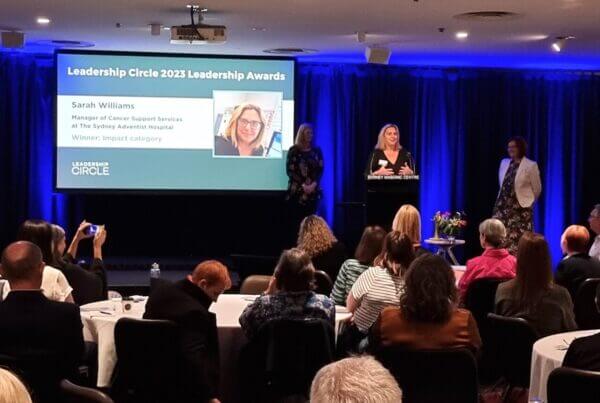On the blog this month, we’re exploring risk: how it shows up in our personal and professional lives, the roles it plays in leadership, and lessons we can learn from it. In this post, we take a look at what happens when risk pays off.
No fewer than four of my friends have seen Beyonce’s Renaissance World Tour. Maybe that doesn’t sound like a lot, but three of those friends have attended more than one tour date, and two have traveled not only out of state but out of country for at least one of those shows. Now, I consider myself a pretty big fan of Billy Joel and Barenaked Ladies, and I’ve been to a bunch of their concerts, but I’ve never needed a passport just to sit in the nosebleed seats and sing “If I Had a Million Dollars” with 20,000 of my closest friends.
But Queen Bey is in a different class altogether. This tour has already made history as the highest-grossing tour for a Black female artist, raking in just under $300 million to date. Forbes predicted that number will top $2 billion by the time the tour ends. And Beyonce shows no signs of slowing down. In addition to be being a chart-topping musical artist and performer, she’s also a prolific songwriter, a fragrance entrepreneur, an actor/director/model, a spokesperson and philanthropist, and a creative producer. She wears, as they say, many hats.
I believe this is the true key to her success. Her business acumen? Stellar, but not exactly. The team behind her production company? It’s more than that, too. The secret is her courageous authenticity. Beyonce is who she is, and she has leveraged her unique abilities to become one of the most successful and influential women in recent history. And she’s not the only one.
Powerhouse Payoffs
When taking a risk can have so many negative outcomes, why chance it at all? Because there’s so much more to gain than there is to lose. To close out our exploration of risk this month, let’s consider a few powerhouse performers who lean into who they are and what they do best, proving that courageous authenticity is where risk pays off.
Taylor Swift: Country Roots, Pop Wings
Beyonce isn’t the only recording artist with a record-breaking tour this year. In July, Taylor Swift’s Eras tour topped those of global superstars Harry Styles, Bruce Springsteen, and Elton John for the biggest tour of the year so far. With an average of 54,000 attending each show (and that’s a conservative estimate, from my research), and 117 planned performances (another conservative estimate, since Taylor keeps extending the tour), we’re looking at more than 6.3 million people who will attend a Taylor Swift concert this year. That’s more people than in the entire state of Missouri. Or the country of Denmark.
Many factors contribute to Taylor’s enormous popularity, including her down-to-earth persona, her mastery of social media and fan engagement, and her insane ability to pen a catchy tune. But perhaps the biggest is the gamble she took that she could bridge the traditional divide between country and mainstream music. Making the leap from country artist to pop star often results in abandoning one fan base for another. But Taylor leaned into her ability to write compelling, emotional, and relatable stories (the hallmark of country music) and combined that skill with experimentation in pop styles and innovative production. The result is a broad and loyal fan base that defies easy categorization. Taylor bet on her ability to connect with listeners, regardless of genre, and continues to play with house money.
Rhianna: Pop Icon and Fashion Empire
The second best-selling female music artist of all time, Rhianna could sit back with her eight studio albums, 14 Grammys, and the most-watched Super Bowl halftime show in history, and be happy being considered a titan of the music industry. But when it comes to RiRi, music’s only half the show.
Since her first foray in the fashion industry with Armani in 2011, Rhianna has become synonymous with style. She is the founder of cosmetics brand Fenty Beauty and fashion house Fenty, and in the last five years, launched lingerie brand Savage X Fenty and skin care brand Fenty Skin. The Council of Fashion Designers of America (CFDA) recognized her with the Fashion Icon lifetime achievement award, given to “an individual whose style has made a significant impact on popular culture on an international stage.” Rhianna’s influence in the industry even has its own name: the “Fenty Effect.” This can be felt especially in the cosmetics realm, where Fenty Beauty inspired brands around the world to change their approach to diversity in marketing and the inclusivity of their products in order to showcase and accommodate a wider variety of skin tones.
Rhianna parlayed a childhood love of fashion and an entrepreneurial spirit into an ever-expanding style empire, one which is having a positive impact on an industry she loves.
Pink: Break the Mold
In a sea of blond teen pop stars in the late ’90s, Pink was an alien. Though her relatively vanilla first album scored multiplatinum success, it was her follow-up, Missundaztood—on which she served as executive producer—that obliterated any assumptions that Pink was yet another cookie-cutter pop performer. In the two-plus decades since the release of that record, she has made a career out of pushing boundaries and blending styles to share her eclectic, adventurous, and emotional self with the world.
You see, Pink broke the “record company golden rule” with that second album, according to Jim Farber of Entertainment Weekly. She changed her sound, injecting her music with influences from her R&B, blues, and gospel-singing roots, and taking ownership of her craft in a way few other young stars did. That reset of artistic authenticity has proved her most successful venture. In 2013, Billboard named Pink Woman of the Year, and in 2021 the magazine awarded her the Icon Award at the Billboard Music Awards. Pink remains one of the world’s best-selling music artists, with more than 40 million albums and 50 million singles sold around the globe.
Lady Gaga: Music and a Movement
When Lady Gaga arrived at the 2010 Video Music Awards with a record 13 nominations and a dress made entirely of raw meat, the world didn’t know what it was in for—but whatever it was, we knew it would be original. In The New Yorker, Kelefa Sanneh called Gaga a trailblazer for “treating her own celebrity as an evolving art project,” and it’s that commitment to reinvention that has defined her enormously successful career and inspired a generation of devotees to Mother Monster.
Gaga’s five solo and two collaborative albums run the gamut, from avant-garde electronic dance music and techno-pop to jazz, glam rock, and even acoustic folk. Her 2011 single “Born This Way” not only served as the inspiration for her foundation of the same name, dedicated to youth empowerment, but became the fastest-selling song on the iTunes Store, with more than 1 million downloads in less than a week. And her single “Shallow,” from the film A Star Is Born, made her the first woman ever to win an Academy Award, BAFTA Award, Golden Globe Award, and Grammy Award in the same year. TIME magazine named Gaga one of the most influential people in the world in 2010—and again, in 2019, proving that, as she has evolved, so too has her cultural relevance and impact in the world.
Whether in leadership or in life, risks are taken for a variety of reasons. Maybe for fun, an adrenaline rush. Or in the pursuit of inspiration and creative insight. Perhaps it’s the desire for attention or validation. Or the potential for achieving a competitive advantage. Regardless, risk-taking is a valuable skill and one that can catapult a leader to greatness.
For these powerhouse musicians, risk held opportunity—for expansion, for artistic control, for cultural impact—and the payoff was beyond their wildest expectations. Let us draw inspiration from their example, and the next time we find ourselves at the edge of uncertainty, let’s reach for courageous authenticity.






